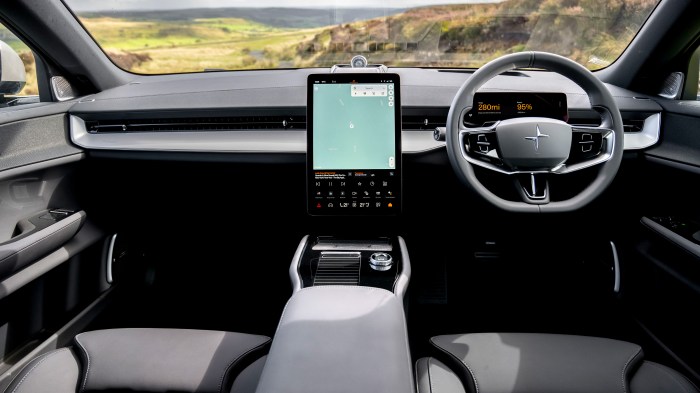Embark on a journey through the fascinating world of Elegant AI-Generated Women You Need to See, where artificial intelligence intertwines with creativity to produce captivating artworks that push the boundaries of imagination. Delve into the realm of digital art and discover the allure of AI-generated women that captivate audiences worldwide.
As we explore the characteristics, technology, and ethical considerations surrounding these AI creations, prepare to be amazed by the ingenuity and beauty they possess.
 AI-generated women are a result of sophisticated technology and algorithms that have revolutionized the field of computer-generated imagery. These virtual women exhibit stunningly realistic features that are created through a complex process of training AI models.
AI-generated women are a result of sophisticated technology and algorithms that have revolutionized the field of computer-generated imagery. These virtual women exhibit stunningly realistic features that are created through a complex process of training AI models.
 When it comes to the creation of AI-generated women, there are several ethical considerations that need to be taken into account. These considerations revolve around how these AI-generated women are portrayed, the implications of using AI to generate idealized female figures, and the potential impact on societal beauty standards.
When it comes to the creation of AI-generated women, there are several ethical considerations that need to be taken into account. These considerations revolve around how these AI-generated women are portrayed, the implications of using AI to generate idealized female figures, and the potential impact on societal beauty standards.
Elegant AI-Generated Women Introduction
Artificial Intelligence has revolutionized the world of digital art by enabling the creation of stunning AI-generated women. These artworks are crafted using advanced algorithms and machine learning techniques to produce lifelike images of women that captivate audiences around the globe.The significance of AI-generated women in the digital art world lies in their ability to push the boundaries of creativity and innovation. These virtual women challenge traditional notions of artistry and provide artists with new tools to express themselves in unique ways. Moreover, AI-generated women offer a glimpse into the future of art, where technology plays a central role in the creative process.Examples of Famous AI-Generated Women Artworks
- Sophia: Perhaps one of the most well-known AI-generated women, Sophia is a humanoid robot created by Hanson Robotics. She has been featured in art exhibitions and conferences, showcasing the intersection of technology and art.
- Lil Miquela: A virtual influencer and model, Lil Miquela has gained a massive following on social media platforms. Her AI-generated persona blurs the lines between reality and fantasy, captivating audiences with her unique style and personality.
- Portrait of Edmond de Belamy: Created by the art collective Obvious using a Generative Adversarial Network (GAN), this AI-generated portrait was sold at auction for a significant sum, highlighting the growing interest in AI-generated art.
Characteristics of Elegant AI-Generated Women
AI-generated women are crafted with a set of common features and characteristics that contribute to their elegance and visual appeal. These characteristics often set them apart from traditional art figures, showcasing a unique blend of creativity and technology.Distinct Features of Elegant AI-Generated Women
- Perfect Symmetry: AI-generated women often possess flawless symmetry in their facial features, creating a sense of harmony and beauty.
- Realistic Details: These women exhibit intricate details such as lifelike skin texture, flowing hair, and expressive eyes, enhancing their realism.
- Diverse Aesthetics: AI algorithms can generate women of various ethnicities, ages, and styles, broadening the scope of representation in art.
- Dynamic Poses: AI-generated women can be depicted in captivating poses and movements, adding a sense of fluidity and grace to their appearance.
Elements of Visual Appeal in AI-Generated Women
- Color Palette: AI allows for the selection of harmonious color schemes that complement the overall aesthetic of the women.
- Lighting and Shadows: Advanced rendering techniques create realistic lighting effects, enhancing depth and dimension in the portrayal of AI-generated women.
- Emotive Expressions: AI can generate subtle facial expressions that convey emotions and add a layer of depth to the characters.
Unique Attributes of AI-Generated Women vs. Traditional Art Figures
- Unlimited Creativity: AI algorithms can produce an endless variety of unique women, pushing the boundaries of traditional art forms.
- Precision and Consistency: AI ensures consistent quality and precision in the rendering of women, minimizing human error and inconsistencies.
- Rapid Iteration: AI allows for quick modifications and iterations, enabling artists to experiment and refine their creations efficiently.
Technology Behind Elegant AI-Generated Women
 AI-generated women are a result of sophisticated technology and algorithms that have revolutionized the field of computer-generated imagery. These virtual women exhibit stunningly realistic features that are created through a complex process of training AI models.
AI-generated women are a result of sophisticated technology and algorithms that have revolutionized the field of computer-generated imagery. These virtual women exhibit stunningly realistic features that are created through a complex process of training AI models.
Creation Process of AI-Generated Women
The process of generating AI-generated women involves training machine learning models on vast datasets of human faces. These datasets contain a wide range of facial features, skin tones, hairstyles, and expressions, allowing the AI to learn and replicate these characteristics.- Facial Recognition: AI algorithms analyze facial structures, identifying key landmarks such as eyes, nose, and mouth to create a realistic face.
- Texture Mapping: Textures are applied to the 3D model of the face to simulate skin tones, blemishes, and other details for a lifelike appearance.
- Expression Generation: Machine learning models are trained to generate a variety of expressions, from smiles to frowns, adding emotional depth to the AI-generated women.
Role of Machine Learning in Refining Appearance
Machine learning plays a crucial role in refining the appearance of AI-generated women by continuously learning and improving the generated outputs. Through a process of feedback loops and fine-tuning, the AI models can produce more realistic and diverse female figures over time.Machine learning algorithms adapt and optimize their parameters based on feedback, resulting in more accurate and visually appealing AI-generated women.
Ethical Considerations in Creating AI-Generated Women
 When it comes to the creation of AI-generated women, there are several ethical considerations that need to be taken into account. These considerations revolve around how these AI-generated women are portrayed, the implications of using AI to generate idealized female figures, and the potential impact on societal beauty standards.
When it comes to the creation of AI-generated women, there are several ethical considerations that need to be taken into account. These considerations revolve around how these AI-generated women are portrayed, the implications of using AI to generate idealized female figures, and the potential impact on societal beauty standards.









